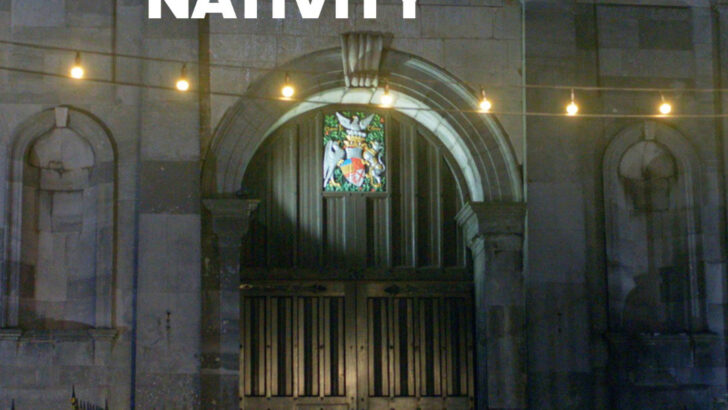There were so many programmes of interest on over the Christmas period –too many repeats as usual, but a few that are worthy of mention.
So This is Christmas (RTÉ One) was certainly something different. It was an unobtrusive fly on the wall style film, a series of vignettes of various people preparing for Christmas. There was no commentary, no judgement, no axe-grinding, just a loving glimpse into the lives of some really interesting people.
At times it was heart-warming, though not in any sentimental way, at other times it was heart-breaking. One of the characters was a young father trying to make Christmas meaningful and enjoyable for his two sons after his wife had died. ‘There has to be hope’, he said, and truly he embodied that.
A mother under financial pressure had left alcohol behind and was creating a wonderful Christmas for her children. Others were on their own, some were lonely, but all were engaging, as they navigated their way towards and through a season that can prove challenging for many. One lady with food anxieties was not looking forward to how feasting is so central at this time.
If the film sought to capture a kaleidoscope of Christmas experiences, I thought it downplayed the importance of religious faith for people in this season – eg Midnight Mass or going to church on Christmas morning. One lady who lived alone tried to get to Mass but couldn’t find anyone to give her a lift.
There was a school choir singing carols and Christmas music was frequently played in the background. Many of the houses had religious imagery, but it wasn’t too clear what roles this played in people’s lives. One odd scene opened the film – a priest trying explain Jesus, Santa and Advent to a bunch of bored looking teenagers in a half-empty church. At first, I couldn’t tell if I was watching fiction or real life.
The Kilkenny Nativity (RTÉ One) was a gentle reading of the Nativity story. In a way the star in this case was Kilkenny City, shown off beautifully – the castle, churches, bridges and rivers but most of all a varied selection of people. Children figured large, as was only right and proper, but there were familiar faces (e.g. GAA coach Brian Cody), impressive cribs, nurses in a hospital with a new baby, plenty of Santa hats.
The imagery was conducive to reflection and prayer, but there were nicely quirky bits as well, such as the Elvis impersonator with his Christmas display aptly signposted ‘Welcome to Graceland’. Clergy featured as well, and also sportspeople, a barman, a craftsman making what looked to be a chalice, and some colourfully dressed Ukrainian visitors. It was too short and yet captured so much. Apart from the RTÉ Player you can also catch it on YouTube.
It has been the tradition for RTÉ Radio 1 to have a cosy Christmas morning edition of its current religious affairs show. This year it was the new series Our Divine Sparks (RTÉ Radio 1). Young children from Ennis reflected on the Christmas story, others sang carols, in an engaging mix of quaint and quirky, the sincere and the frivolous. There were references to pizzas, playing games and Mary and Joseph wondering what to pack for their journey to Bethlehem!
On hand to discuss the Nativity narrative was Fr Kieran O’Mahony, an Augustinian friar, Rev Gillian Wharton of the Church of Ireland and Kuleika Rogers, lecturer in Jewish Studies in TCD. Fr O’Mahony noted how the story caught the imagination, not just of the children we heard, but of great artists through history. He thought the evangelists, especially Luke, would be pleased. He also gave some interesting historical background, showing connections with elements in the Old Testament. Kuleika Rogers gave useful background context from a Jewish perspective – e.g. the strategic location of Judea, and how the Roman Empire (and other powers) sought to control it.
Like presenter Dearbhail McDonald, Rev Gillian Wharton, spoke of how ‘messy’, in a sense, the story was and saw how perfection could be as something of an obstacle. God didn’t wait for the world to be perfect before coming to join us.
Perhaps there was too much analysis and not enough acceptance for the day that was in it. Patrick Kavanagh might have complained about too much of a tendency to ‘analyse God’s breath in common statement’.


 Brendan O’Regan
Brendan O’Regan The Kilkenny Nativity.
The Kilkenny Nativity.